Syllabus of Automobile Engineering in 2023
Automobile Engineering is one of the most dynamic fields in the sector of engineering and IT. It is growing at a magnanimous rate. Students are enrolling for diploma in automobile engineering at a very rapid rate. The demand and growth of this industry have skyrocketed at a magnanimous rate.
Since it is such a dynamic industry, the syllabus also tends to be makeshift from time to time. There are constantly new updates and changes taking place within this sector.
Let us take a look at what are the things you are expected to be taught in automobile engineering in 2023.
Semester 1
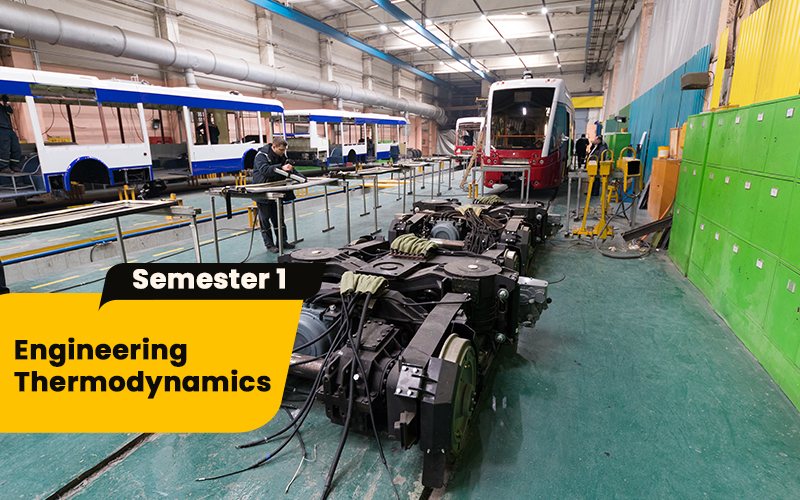
Engineering Thermodynamics
The theory and methods needed to properly utilise empirical thermodynamic data are developed by engineering thermodynamics.
This subject serves as the basis for the Heat Transfer course, which examines the pace and methods of heat-related energy transmission.
Heat transport and energy work are built on the principles of thermodynamics. These essential concepts have an impact on the evaluation of heat loss or energy produced when any engineer designs or implements a system.
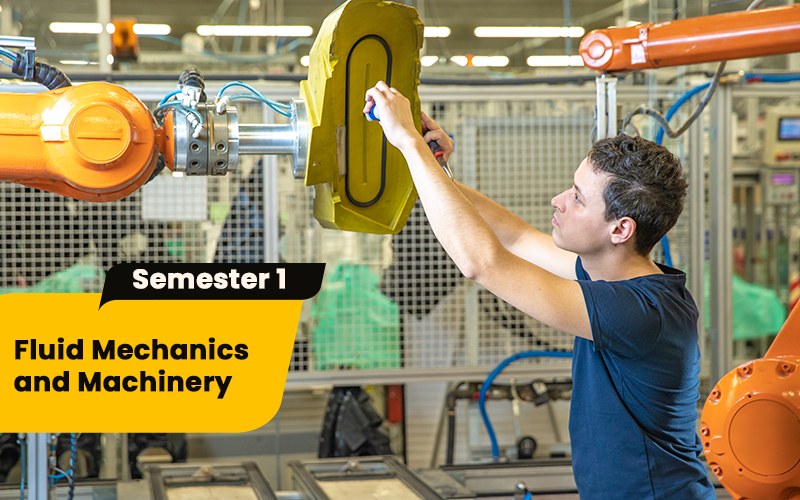
Fluid Mechanics and Machinery
The scientific field of fluid mechanics examines the behaviour of fluids both at rest and in motion. As a result, it covers fluids' static, kinematic, and dynamic characteristics. In an automobile engineering course, fluid statics is the study of fluids that are at rest.
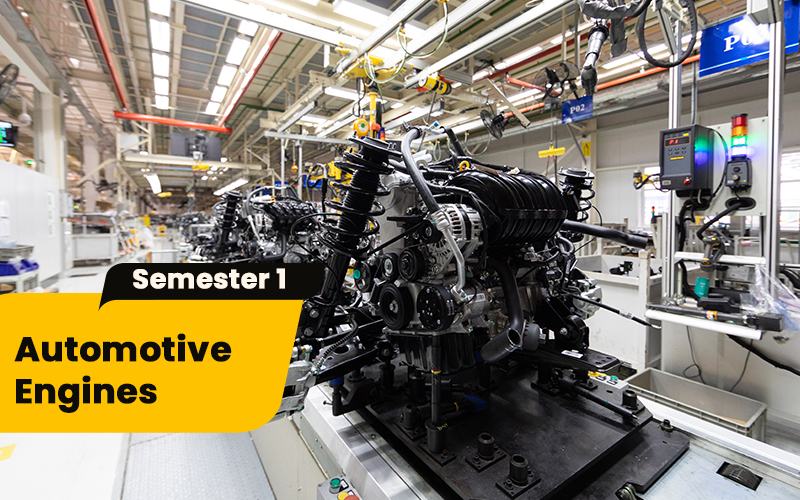
Automotive Engines
A vehicle's engine is the component that transforms the mechanical energy of the fuel into the power needed to propel the vehicle.
Automotive engines are split into four-cycle and two-cycle engines based on how they operate, and they are further separated into diesel engines, which self-ignite using hot air, and spark plug ignition engines, commonly known as gasoline or carburettor engines.
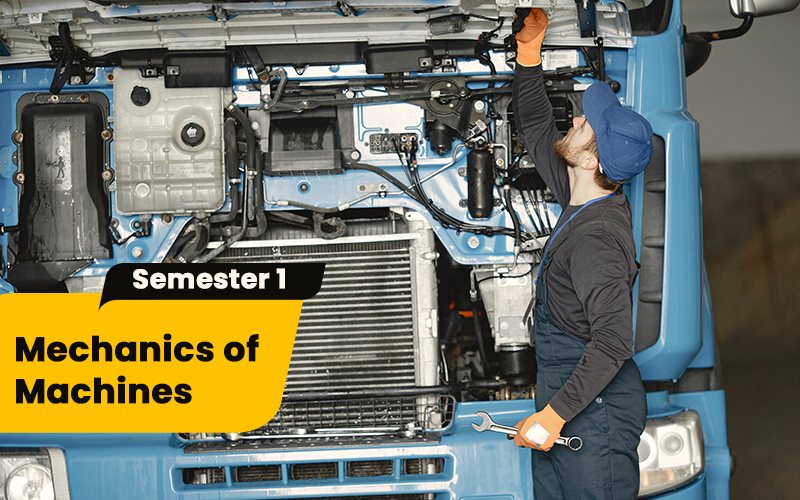
Mechanics of Machines
The field of this automobile engineering subject known as "Mechanics of Machines" can be defined as the study of the relative motion of the various components of a machine and the forces acting on these components as a result of limited motion.
Now, these are very basic and core components of automobile engineering. As you go forward, you will start learning more about the depth of automobile engineering studies. Let’s see what your syllabus will be like in the second semester of George Telegraph’s course details.
Semester 2
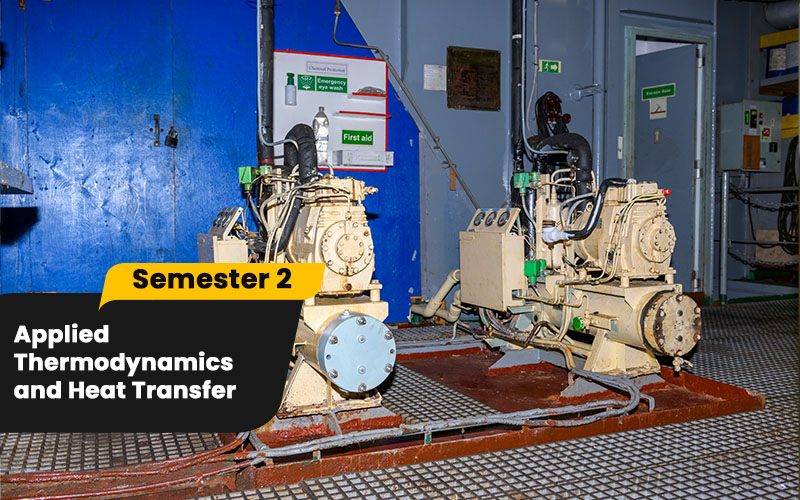
Applied Thermodynamics and Heat Transfer
The law of thermodynamics applies to all processes and engines. When discussing automobiles, the Diesel cycle, Otto cycle, and other thermodynamic processes serve as the foundation for how they function.
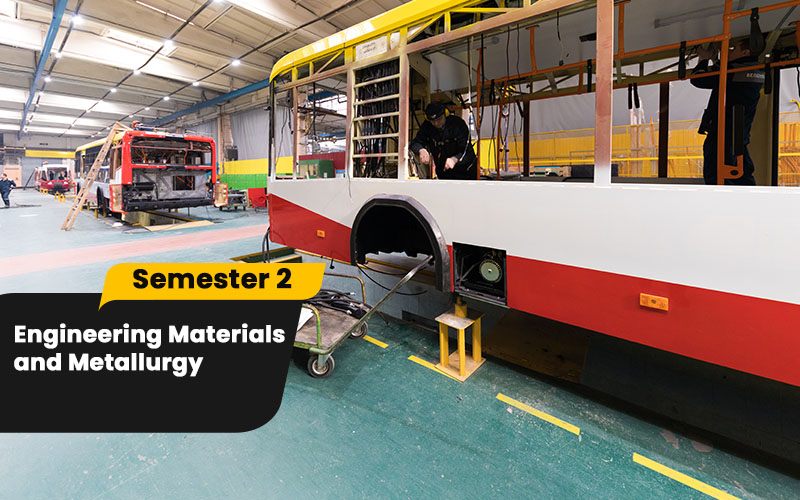
Engineering Materials and Metallurgy
Materials Metallurgical is the study of minerals, their processing, and their transformation is a vital component of engineering. The course covers a variety of mineral-related topics, such as mechanical behaviour, physical metallurgy, thermodynamics, kinetics, etc.
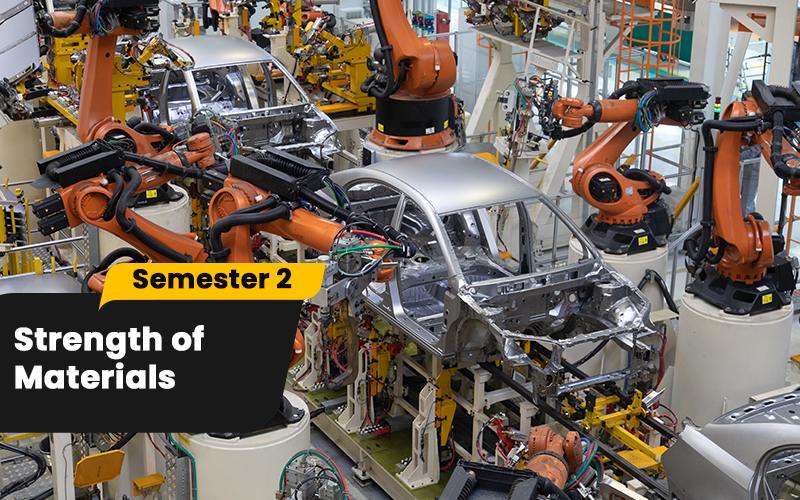
Strength of Materials
The ability of a material to resist mechanical forces when in use is a topic of engineering study. The strength of a material in a particular application is influenced by a variety of elements, such as its resistance to deformation and fracture, and it frequently depends on the geometry of the member being constructed.

Electronics and Microprocessors
Microprocessors are typically used for increased vehicle safety, decreased fuel usage, reduced engine emissions, and increased automotive reliability. For instance, an onboard computer may continuously calculate the ideal fuel/air ratio based on the load, engine temperature, and engine speed.
To join George Telegraph Training Institute Sealdah, feel free to contact us. We will set up a free counseling session for you.